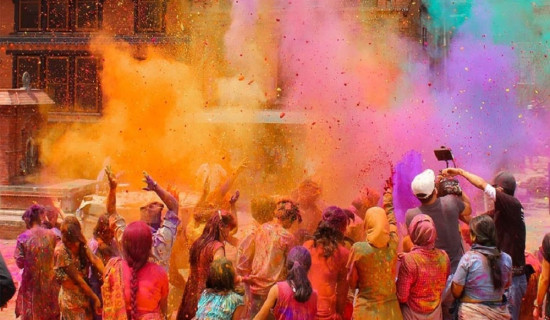- Tuesday, 3 March 2026
Presidential System Under Growing Scrutiny
While forging their alliance, Nepali Congress and CPN-UML said that amendment to the constitution was the basis of their government. They have, in theory, agreed to revise the statute by reviewing the proportional representation system and present number of seats in the House of Representatives and National Assembly and reduce the number of local bodies. But they have not yet forwarded their agenda of constitution amendment. Neither have they disclosed how they would do so.
CPN-Maoist Centre chairman Pushpa Kamal Dahal Prachanda has reiterated his previous demand for a directly elected president and a complete proportional electoral system while addressing a gathering of All Nepal Trade Union Federation recently. It had floated this demand during the time of constitution writing. Coinciding with the demand of Prachanda, Baburam Bhattarai, chairman of Janata Samabadi Party, also echoed his party’s will for directly elected and powerful president. The logic of Prachanda and Bhattarai is that without a powerful president, overall development of the nation is not possible. But, their logic does not fit with the present-day reality.
If we scrutinise the fresh incidents in South Korea and Syria, the logic of those ex-revolutionary leaders turns into to a false hypothesis. South Korea has been considered economically vibrant, politically stable and socially stable country, but giving a shock to the whole world, President of South Korea Yoon Suk Yeol declared the martial law in the country, saying he wanted to check the criminal activities in the politics and society. Though the parliament foiled his bid, the country is still reeling from his undemocratic move.
The worst example of the presidential rule is seen in Syrian Arab republic. Syria is one of the most ancient civilizations because the Paleolithic era's human remains were discovered at the Dederiyeh Cave of that country. But, the country of ancient civilizations has been devastated by almost a half century's rule of two Presidents - Hafez al-Assad and his son Bashar al-Assad.
If we accept the provision of the directly elected president with executive powers in him, we will start to godify him/ her because worshipping the strong and mighty has been our culture. So, past experiences show that we hate, neglect and undermine the weak, whereas we glorify and eulogise the rich and powerful. In the past, we had not only worshipped kings but also royalists.
Therefore, we should not take decision in haste and move to the presidential system because the parliament can't check and balance the acts of the president. As the president holds office with fixed term and plenty of executive powers, there are high chances that he could show authoritarian tendency. He will not be in the touch of common people either. Instead, prime ministerial system is timely and democratic in our context because executive power is vested in the elected parliament as we have today. The parliamentary system promotes collective decision making and consensus seeking culture which is prevalent in many modern and democratic nations. Therefore, the presidential system of governance is full of many pitfalls that may put our democratic system in jeopardy.
















